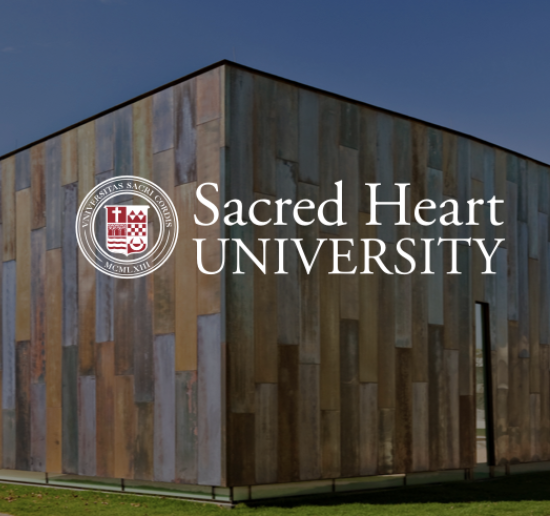
FAIRFIELD, Conn.— A new national survey conducted by Sacred Heart University reveals that six in 10 Americans (61.1%) are concerned that legalized sports gambling could increase the risk of corruption, including match-fixing, bribery or unethical influence on athletes and outcomes. The digital survey of 1,500 participants, conducted in partnership with GreatBlue Research, examined public opinion on the rising prevalence of sports betting and its societal impact. The study comes amid a surge in legalized gambling markets across the United States and growing partnerships between sports leagues and betting platforms.
While perceptions of sports gambling were generally positive—52.8% of respondents support legalization of sports gambling nationwide, and 58.8% support it in their own state—the survey also examined how sports gambling affects financial wellbeing as well as personal relationships. Americans remain divided over its overall impact: only 36.9% believe sports gambling has a more positive than negative effect on society, while 48.4% believe the effect is more negative.
When asked questions regarding the integrity of sports gambling, respondents were either “very concerned” (22.2%) or “somewhat concerned” (38.9%) about the risk of corruption in sports due to gambling. There also were significant differences based on gender and age. Younger respondents thought sports gambling should be more accessible (45.7% age 18-34, 43.6% age 35-54 and 18.7% age 55+). And sports gambling was viewed more favorably by men (60.8%) than women (41.9%).
“This poll reflects a national tension in regard to comfort and acceptance of sports betting,” says Andrew Miller, chair of the sports communication & media bachelor’s and master’s programs at SHU. “While sports betting is now widely accepted and easily accessible, a clear majority of Americans are uneasy about the potential for corruption and the erosion of fair play. And while the question wasn’t included in the survey, obvious solutions might include advocacy for regulators, legislators and law and game enforcement to be more vigilant and more public service outreach around potential gambling problems such as addiction.”
Key findings from the poll include:
- Skepticism toward league partnerships: Only 30.8% of Americans believe sports leagues should partner more with gambling platforms, while 50.1% oppose such partnerships
- Perception of media saturation: Over one-quarter (26.5%) say the amount of gambling-related coverage in sports media is “too much,” while only 9.6% believe there’s “not enough”
- Real-world consequences: Nearly 1 in 5 respondents (18.3%) said sports gambling has caused tension in their personal relationships, and 32.3% know someone whose well-being has been negatively affected by sports gambling
- Drivers to sports gambling: The top motivators included winning money (52.5%), excitement (31.2%) and promotions (26.5%)
- The top concerns: The primary barriers expressed by poll respondents include financial risk (59.5%); addiction (40.8%); and unfair odds (40.8%)
Younger Americans (ages 18–34) are more likely to view sports gambling positively (62.9%) and support expanded legalization (65.1%), but they are also more likely to report knowing someone harmed by it (38.2%) and to say that gambling has changed how they consume sports content (46.1%). Additionally, significantly more men than women say they are likely to bet in the coming year (men, 50.7%, women, 28.5%), with those numbers also skewed by age: 55.9% age 18-34, 47% age 35-54 and 20.5% age 55+.
Despite these concerns, Americans remain divided over its overall impact: only 36.9% believe sports gambling has a more positive than negative effect on society, while 48.4% believe the effect is more negative or are unsure.
The 60-question poll was completed between January 29 and February 3, 2025, with a margin of error of ±2.43% and a confidence level of 95%. Participants represented diverse demographics across all U.S. regions. More detailed information on the survey results can be found at www.sacredheart.edu/sportsgambling.
About Sacred Heart University
As the second-largest Catholic university in New England, and one of the fastest-growing private doctoral institutions in the U.S., Sacred Heart University is a national leader in shaping higher education for the 21st century. SHU offers more than 100 undergraduate, graduate and doctoral programs on its Fairfield, Conn., campus. Sacred Heart also has a campus in Dingle, Ireland, and offers online programs. More than 10,000 students attend the University’s eight colleges and schools: College of Arts & Sciences; School of Communication, Media & the Arts; School of Social Work; School of Computer Science & Engineering; College of Health Professions; the Isabelle Farrington College of Education & Human Development; the Jack Welch College of Business & Technology and the Dr. Susan L. Davis, R.N., & Richard J. Henley College of Nursing. Sacred Heart, a Laudato Si’ campus, stands out from other Catholic institutions as it was established and led by laity. The contemporary Catholic university is rooted in the rich Catholic intellectual tradition and the liberal arts, and at the same time cultivates students to be forward thinkers who enact change—in their own lives, professions and in their communities. The Princeton Review includes SHU in its Best 390 Colleges: 2025 Edition, and Best Business Schools: 2024 Edition. Sacred Heart is home to the award-winning, NPR-affiliate station, WSHU Public Radio, a Division I athletics program and an impressive performing arts program that includes choir, band, dance and theatre. www.sacredheart.edu